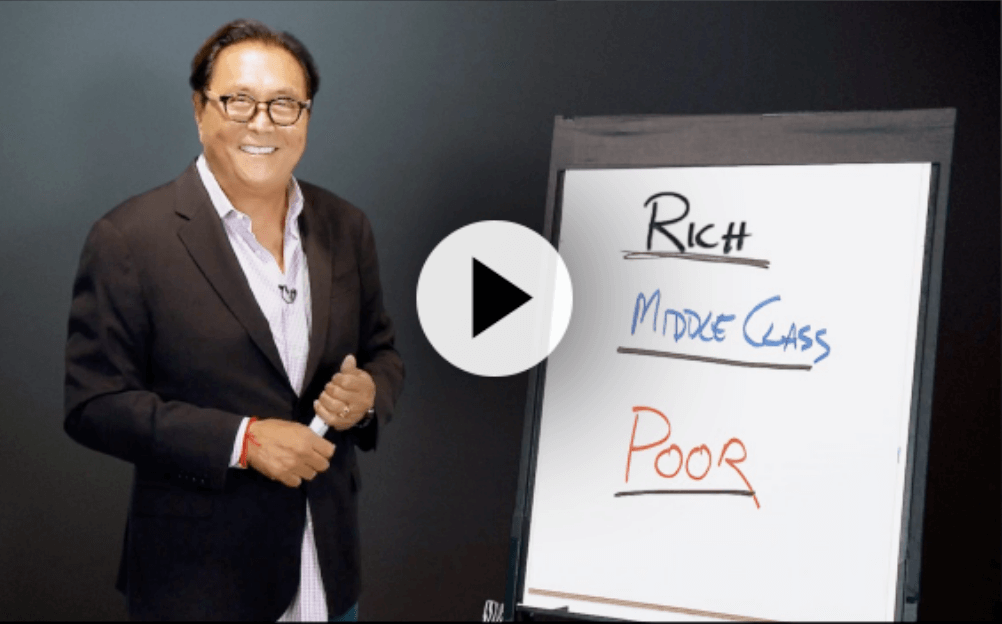Blog | Personal Finance
Business Partners At First Sight
How and why Robert and I became business partners at first sight
June 25, 2020
Many years ago, when I was living in Honolulu, I met my friend, Karen, at TGI Fridays after a workout. I was in the middle of planning to make a big move to New York City. As we grabbed two seats at the bar, she spotted her friend Robert who was there with his buddies. Robert and I said a brief hello, and that was it … or so I thought.
Robert kept reappearing, however, and he kept asking me out. This went on for almost six months — and I kept saying no. I explained that I was moving to New York City, so there was no point in exploring a new relationship. To further thicken the plot, it turns out that Karen was an old girlfriend of Robert’s from about eight years earlier.
He wouldn’t take no for an answer
But Robert had his sights set on me and at the time I didn’t know how tenacious he was. After my continual rebuffs, he phoned my friend Karen and said, “Karen, I know that you and Kim are best friends. Would you do me a big favor?”
“I know you’re up to something,” Karen said. “What do you want?”
Robert, being the salesman that he is, said, “I want a referral!”
Sure enough, Karen began telling me what a wonderful guy Robert was. Of course, because she did such a great job of selling me on Robert, I was completely convinced that Karen still liked him. Since I’m always very loyal to my friends, I wasn’t about to go out with someone she clearly had strong feelings for.
Another two months passed, and I was still working out my plan to move to NYC, but by this time Karen had convinced me that she was not interested in Robert romantically. Over the months that Robert was in hot pursuit, he sent me flowers, postcards from his travels, cards with personal notes, and more flowers.
One afternoon, Robert called me at work and asked me out again. I was intrigued and, let’s be honest, loved the attention, so I said, “How about tonight?”
Here comes the hard sell
One thing I discovered about Robert was his great salesmanship skills. From the many fact-finding calls Robert had with Karen, he discovered my two favorite things: good champagne and walks on the beach. That was all he needed to put his plan in place for our first evening together.
We had reservations at Michel’s, one of the finest restaurants in all of Honolulu, right on the beach. When we walked in, the maître d’ approached and said, “Mr. Kiyosaki, I have your table ready looking out on the beach, and your champagne is chilling.”
I was impressed. As the champagne was poured, the maître d’ reappeared and suggested, “If you’d like, why don’t you take your champagne with you and go for a walk along the water.”
Music to my ears
We stayed up talking until 3:00 a.m. on that first date. I still remember the key question Robert asked me that night.
“What do you want to do with your life?” he asked.
Immediately out of my mouth came the words, “I want my own business. I’m not very good at taking orders, and I love business, so it seems the solution for me is to have my own business.”
“I can help you with that,” he said, a twinkle in his eye.
He went on to explain the business model his rich dad had taught him, by drawing a diagram of the Cashflow Quadrant on a napkin.

“It represents the four types of people found in the world of business,” he explained. “‘E’ stands for employee.’ S’ stands for self-employed. ‘B’ stands for business owner, and ‘I’ stands for investor.”
He explained that a self-employed person might be a doctor, accountant, mechanic, or beautician. She owns the business, and she works in the business. ‘S’s are often the sole income producers in their businesses. A business owner depends on other people working in the business and operates the business with very good systems. Microsoft, Harley Davidson, and Starbucks are examples of ‘B’s.
He went on: “Here is the difference between the two: If an ‘S takes a one-month vacation, then her income stops for one month. When she takes a break, her income takes a break. If a ‘B’ takes a one-month or a one-year vacation, when she returns her business will be running as well if not better without her. The key to the ‘I’ or investor quadrant is to have your money working hard for you so that you don’t have to work hard for money.”
Now, some ladies may not have found that as romantic as I did. But I was sold. Within one month we began our first business venture together. Along with being life partners since that first date, we’ve also been business partners.
Partners with aligned goals
Ok, so why am I reminiscing about my first date with Robert? Because I’m sharing my best marriage advice: that we are true partners — in life and in business. And I think a large part of that is because we have the same goals.
Ladies: If you aren’t married, you can absolutely chase your financial dreams on your own. And if you are married, but not in alignment with your spouse about investing, you can absolutely do it yourself without his support (though it can become a very sticky situation, since there are finances involved).
But think about the magic that can happen when two like-minded people partner up in life.
If there’s one thing I’ve learned in life, it’s that partners are extremely important. Great partners support you, want the best for you, push you to be a better version of yourself, teach you things you wouldn’t otherwise know, and they are fun to be around. It’s been that way with Robert and me, in both marriage and business.
Together, we have created a wonderful life. Robert has taught me much about business, but he has always inspired me to find my own financial freedom. This, I believe, is true love.
Are you partnered for success?
A few years back, I read an article about a woman who felt like a guest in her own home because she didn’t bring home a paycheck. Instead, she stayed at home to raise their child. The article is titled “Why I Will Never Live On Another Man's Dime,” and starts with this sobering statement: “For the 8 years that my ex-husband and I were together, I was financially dependent on him.”
In her article, writer and comedienne Laura Lifshitz shared the struggles she faced from a husband who continually devalued her contributions to the household, saying things like, “I pay the bills. It’s my house.”
To her husband, Laura’s efforts mattered little:
“It didn't matter that I was taking care of the house and our child. It didn't matter that I was making a full-force effort to find a good job (applying for jobs, seeking recruiters, utilizing my alumni connections and resources, etc.) and in the meantime working part-time until I found something. It was his house. I guess I was just merely a guest.”
She goes on to share that these struggles eventually ended in divorce. In the process, she landed what she calls a perfect job that allows for her to provide for herself and her child. In her words, “Now, I have the power. I am broke and struggling, but damnit, I have my two cents and I love it.”
Power is a mindset
Laura’s story is sadly too common. Unfortunately, it’s an issue rarely discussed in the mainstream media, let alone among women themselves. Let’s face it, when it comes to money, most women feel woefully behind men. A 2015 study from Fidelity Investments reveals that nearly 80% of women don’t discuss money with family and friends because they find it too personal and uncomfortable to do so.
An article in Today on Fidelity’s findings shows that at some point in their youth, women lose confidence around money and numbers, even though science shows there’s no difference between men and women’s mathematical capacity (duh!).
As the article states, “Girls in elementary school think they are just as good as boys. Something happens in high school. There is a cultural issue in terms of stereotypes that seem to survive.”
Opt out of the power struggle
This goes to show that many of the financial struggles women face stem not from ability, but from culture and conditioning. Certainly, when your husband reminds you that he’s in the position of power, much like Laura’s did by saying, “I pay the bills. It’s my house,” that conditioning continues. It’s often very hard for a woman to break out of this vision of herself set by other men, but it’s essential.
Contrast Laura’s story with the story of Heidi Rasmussen, who, after being laid off from a lucrative VP position, was asked to help her husband start and build a business.
As Money reports:
“Her husband, Reid, had already left his job as manager at an insurance agency to launch a business. His idea: Get insurers to offer workers discounts on expenses like prescriptions and urgent care. Struggling to get his concept off the ground, he appealed to his wife to apply her marketing brain. “I decided to transform the idea into an engaging brand,” she says.
Together, Heidi and Reid have built a multimillion-dollar business. Better yet, they’re having fun together!
The pluses of partnership
All this goes to show the importance of picking your partners, both in business and in life. As women, we have a choice about who we spend our time and talent on, and a choice about what we’ll believe about ourselves — no matter what anyone, including our spouses, may say.
I’m fortunate. Like Heidi, I’ve had a husband in Robert who not only helps me be a better version of myself and encourages me to flourish financially, but with whom I also enjoy building business and investments. And it’s made all the difference in the world.
Whether in marriage or business, the partners you surround yourself with will play an enormous role in determining your success. He or she has the power to impact your quality of life. So my marriage advice is this: Choose your partners wisely and you won’t regret it; choose them poorly, and you’ll be miserable.
Need More Financial Security?
No matter how you make money or much you have in the bank, there's always more to learn.

Choose to Be Rich—Click Here
Now, I’m not saying it will always be roses and sunshine. But when done right, it can be the most rewarding relationship — both financially, emotionally and spiritually — of them all.
So, how are you choosing your partners? And how can you get your spouse on board if he’s just not interested in investing? And if you do get him on board, how do you dive into the world of investing and do so successfully?
I offer answers to all these questions, and more, in my book, Rich Woman. My passion is to educate and encourage women to create the financial security and peace of mind they want and deserve in their lives. If that’s what you want, then I trust my book will be of great value to you.
Original publish date:
September 13, 2018